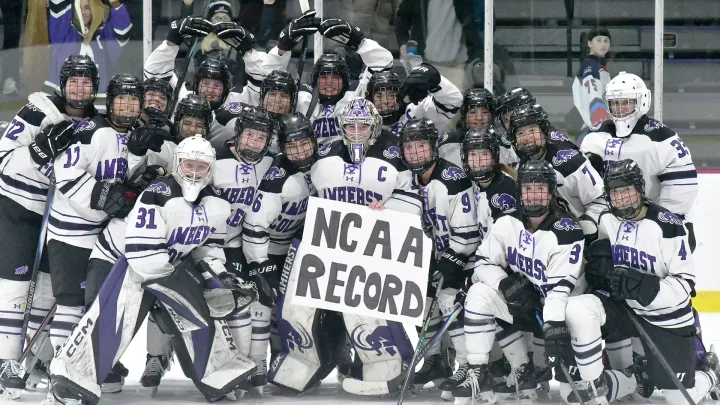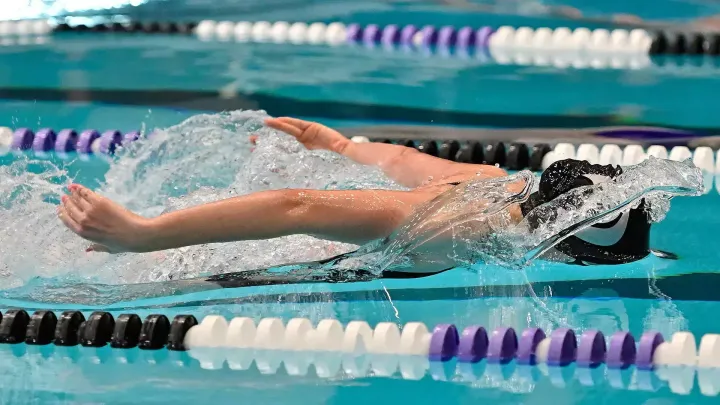Villanova is latest in NCAA scandals
This is not the first time Villanova has been in the spotlight because of student-athletes making illegal phone calls using an employee’s access code. In 1996, current New Jersey Nets guard Kerry Kittles, a freshman star on the Wildcats basketball team, was suspended for three games for charging $3,000 worth of long-distance phone calls to an athletic department employee’s account. I wonder if it was the same employee whose code was “stolen.” Coincidence?
Villanova’s problems are one of the many examples of NCAA rules violations this year. At the University of Georgia, Head Coach Jim Harrick, Sr. and his son, recently terminated assistant coach Jim Harrick, Jr., have been accused of numerous violations including forging grades, paying for hotel rooms for players and (what a surprise) paying for players’ long-distance phone bills. The allegations, made by former Georgia basketball player and convicted criminal Tony Cole, have opened up a whole new can of worms for the Harrick regime. Just a few years ago, Harrick was driven out of UCLA after breaking NCAA rules and then had a similar experience at the University of Rhode Island before heading to Georgia. Monday, the University of Georgia suspended Harrick with pay for the rest of the season and has taken the team out of both the SEC and NCAA tournaments.
Cole, a very talented athlete with well known off-court problems gave numerous interviews to ESPN over the last two weeks in which he basically backstabbed the people who were trying to help him in the first place. If someone with Cole’s past was making these allegations against any other coach besides Jim Harrick, most people would dismiss the charges, assuming them to be revenge for Cole’s dismissal from the basketball team. However, because of Harrick’s checkered past, the University of Georgia and the NCAA are taking Cole’s accusations extremely seriously.
Cole has alleged that he enrolled in correspondence classes, but never did any work for the classes and still received passing grades. He claims (and has evidence) that Harrick, Jr. paid his friend’s mother $300 for a summer phone bill. He also reported receiving an A in a class he never attended once during the semester, a class titled “Coaching Principles and Strategy of Basketball,” taught by none other than Jim Harrick, Jr.
If this is what athletic recruiting has come to, then the NCAA and its member institutions need to seriously reconsider their policies on student-athletes. Obviously there are colleges which recruit fairly and whose athletes take normal courseloads, but when allegations like these surface it raises a red flag. How many other athletes are given special privileges such as access to long-distance phone calls and falsified grades? And are these special privileges reason to penalize the school, the player, or both?
I’m not willing to claim that the majority of scholarship athletes are breaking NCAA rules. I’m not evening willing to claim that scholarship athletes should be treated exactly like other students. However, I am willing to demand that teams play on a level field and all schools adhere to the same rules, whether or not the rules include giving athletes preferential treatment.
The NCAA Tournament and all its Madness
The NCAA Tournament and all its Madness
It’s finally March! Welcome to March Madness, quite possibly the best month of sports. Not only are the NBA and NHL gearing up for championship tournaments, but baseball is in full spring training form. More importantly, the NCAA National Basketball Championship Tournament is upon us. Although I must admit that I have not been able to follow college basketball this year as much as in previous years, I’m still geared up for the tournament.
If you’re a sports fan, which I assume you must be if you’re reading my column, you know what I’m talking about: sitting in front of the television on Selection Sunday, trying to figure out whom your favorite team will be playing in the first round, looking for the big “upset special,” picking a sleeper team. What could be better? I love going to ESPN.com immediately after the brackets have been announced, printing out my own personal bracket, and slaving over eight-nine match-ups for hours because, after all, every pick counts.
And how could I forget watching first-round games from noon until midnight on the first two days of games. One game ends and the next begins, it’s like paradise for a basketball fan. Hours and hours of postgame analysis and numerous Dick Vitale cheers of “That’s awesome, Baby. With a capital A!” Teams chanting “We’re number one” and underdogs crying because they just knocked off one of the top teams in the country with a group of players that could barely play here at Amherst. I can feel the emotion and the energy already.




Comments ()